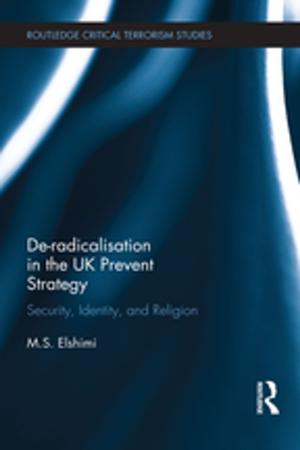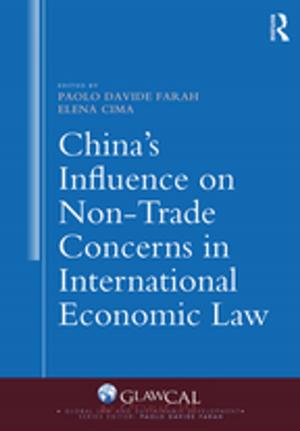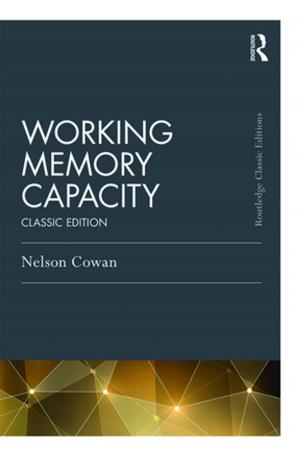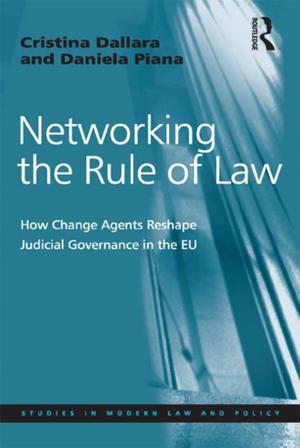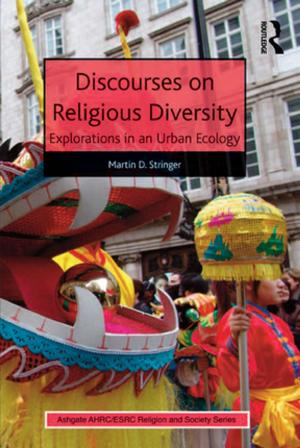Western Muslims and Conflicts Abroad
Conflict Spillovers to Diasporas
Nonfiction, Social & Cultural Studies, Political Science, International, International Relations| Author: | Juris Pupcenoks | ISBN: | 9781317426318 |
| Publisher: | Taylor and Francis | Publication: | December 7, 2015 |
| Imprint: | Routledge | Language: | English |
| Author: | Juris Pupcenoks |
| ISBN: | 9781317426318 |
| Publisher: | Taylor and Francis |
| Publication: | December 7, 2015 |
| Imprint: | Routledge |
| Language: | English |
This book explains why reactive conflict spillovers (political violence in response to conflicts abroad) occur in some migrant-background communities in the West. Based on survey data, statistical datasets, more than sixty interviews with Muslim community leaders and activists, ethnographic research in London and Detroit, and open-source data, this book develops a theoretical explanation for how both differences in government policies and features of migrant-background communities interact to influence the nature of foreign-policy focused activism in migrant communities. Utilizing rigorous, mixed-methods case study analysis, the author comparatively analyses the reactions of the Pakistani community in London and the Arab Muslim community in Detroit to the wars in Afghanistan and Iraq during the decade following 9/11. Both communities are politically mobilized and active. However, while London has experienced reactive conflict spillover, Detroit has remained largely peaceful.
The key findings show that, with regards to activism in response to foreign policy events, Western Muslim communities primarily politically mobilize on the basis of their ethnic divisions. Nevertheless, one notable exception is the Arab-Israeli conflict, which is viewed through the Islamic lenses; and the common Islamic identity is important in driving mobilization domestically in response to Islamophobia, and counterterrorism policies and practices perceived to be discriminatory. Certain organizational arrangements involving minority community leaders, law enforcement, and government officials help to effectively contain excitable youth who may otherwise engage in deviant behavior. Overall, the following factors contribute to the creation of an environment where reactive conflict spillover is more likely to occur: policies allowing immigration of violent radicals, poor economic integration without extensive civil society inter-group ties, the presence of radical groups, and connections with radical networks abroad.
This book explains why reactive conflict spillovers (political violence in response to conflicts abroad) occur in some migrant-background communities in the West. Based on survey data, statistical datasets, more than sixty interviews with Muslim community leaders and activists, ethnographic research in London and Detroit, and open-source data, this book develops a theoretical explanation for how both differences in government policies and features of migrant-background communities interact to influence the nature of foreign-policy focused activism in migrant communities. Utilizing rigorous, mixed-methods case study analysis, the author comparatively analyses the reactions of the Pakistani community in London and the Arab Muslim community in Detroit to the wars in Afghanistan and Iraq during the decade following 9/11. Both communities are politically mobilized and active. However, while London has experienced reactive conflict spillover, Detroit has remained largely peaceful.
The key findings show that, with regards to activism in response to foreign policy events, Western Muslim communities primarily politically mobilize on the basis of their ethnic divisions. Nevertheless, one notable exception is the Arab-Israeli conflict, which is viewed through the Islamic lenses; and the common Islamic identity is important in driving mobilization domestically in response to Islamophobia, and counterterrorism policies and practices perceived to be discriminatory. Certain organizational arrangements involving minority community leaders, law enforcement, and government officials help to effectively contain excitable youth who may otherwise engage in deviant behavior. Overall, the following factors contribute to the creation of an environment where reactive conflict spillover is more likely to occur: policies allowing immigration of violent radicals, poor economic integration without extensive civil society inter-group ties, the presence of radical groups, and connections with radical networks abroad.

